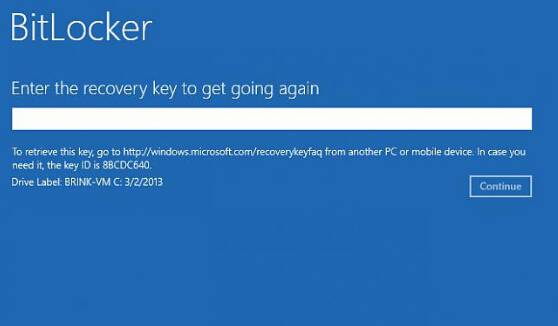Internet Explorer has been around for a long time, and even though Microsoft has discontinued its support, some users are still using it. However, many users have reported a frustrating issue where Internet Explorer automatically opens files instead of downloading them on their Windows 10 computers. If you’re facing a similar issue, don’t worry, as there are several ways to stop Internet Explorer from opening files on your computer.
In this blog post, we’ll discuss the different methods that you can use to stop Internet Explorer from opening files on Windows 10. With these methods, you can download files without worrying about them opening up automatically.
Video Tutorial:
The Challenge of How to Stop Internet Explorer from Opening Files Windows 10
When downloading files from the Internet, Windows 10 usually prompts you to choose whether to download the file or open it. However, some users might experience issues where Internet Explorer automatically opens the file instead of downloading it. This issue can be frustrating, especially if you want to keep the file for later use or if you don’t want to risk opening a potentially malicious file.
Things You Should Prepare for
Before we get started with the different methods to stop Internet Explorer from opening files on Windows 10, there are a few things that you should do to prepare:
- Check your Internet Explorer version and ensure it is updated.
- Scan your computer for any potential viruses or malware that might be causing the issue.
- Ensure that you have a reliable antivirus software installed on your computer.
- Identify which file types you want to download instead of having them automatically open.
Method 1: Change Your Internet Explorer Download Settings
Before trying out the different methods, it’s essential to check your Internet Explorer settings to ensure that downloading files is set as the default option. Here’s how you can do it:
1. Open Internet Explorer and click on the gear icon at the top right corner of the window.
2. From the drop-down menu, select “Internet Options.”
3. In the Internet Options window, click on the “Security” tab.
4. Click on the “Custom Level” button.
5. Scroll down to the “Downloads” section and ensure that “File download” is enabled.
6. Click the “OK” button and then “Apply” to save the changes.
7. Exit Internet Explorer and then relaunch it.
Pros:
– Easy to follow steps.
– Quick fix without the need to install any third-party software.
– Applicable to most Windows 10 users.
Cons:
– Does not work for all file types.
– Some users might not be comfortable changing their Internet Explorer settings.
Method 2: Modify the Registry
If the first method didn’t work, another option is to edit your registry settings. Before doing so, it’s essential to back up your registry to avoid any accidental changes. Here are the steps to follow:
1. Press the Windows logo key and R to open the “Run” dialog box.
2. Type “regedit” and then press enter.
3. In the Registry Editor window, navigate to HKEY_LOCAL_MACHINESOFTWAREMicrosoftWindowscurrentversionpoliciesAttachments.
4. Right-click on the Attachments folder and select “New” > “DWORD (32-bit)”.
5. Name the new DWORD value “ScanWithAntivirus.”
6. Right-click on the newly created ScanWithAntivirus value and select “Modify.”
7. In the “Value data” field, change the value from 0 to 1.
8. Click “OK” to save the changes and then close the Registry Editor.
Pros:
– Effective at stopping Internet Explorer from opening files for some users.
– Resolves the issue for multiple file types.
Cons:
– Can be risky if you’re not familiar with modifying the registry.
– A single mistake can cause irreversible damage to your computer.
Method 3: Use a Different Browser
If the issue persists, one solution is to use a different browser to download files. Google Chrome, Firefox, and Microsoft Edge are some of the more popular browsers with excellent support for Windows 10. Here’s how to download files on Google Chrome:
1. Open Google Chrome and go to the web page where the file is located.
2. Click on the link to the file you want to download.
3. Click the arrow next to the file download and select “Keep” from the drop-down menu.
4. Chrome will download the file in the download manager, and you can then access it from your downloads folder.
Pros:
– Provides a long-term solution.
– Avoids the need to modify registry or Internet Explorer settings.
Cons:
– Users might prefer to keep using Internet Explorer or are not comfortable with using new browsers.
Method 4: Install the File Download Blocker
File Download Blocker is a cloud-based software that can prevent automatic opening of files on Internet Explorer. Here’s how you can install it:
1. Go to the File Download Blocker website and click the “Download” button.
2. Once the download is complete, extract the downloaded file to your desired location.
3. Run the “setup.exe” file and follow the on-screen prompts to install.
4. After installation, File Download Blocker will appear in the system tray.
5. Right-click the icon and select “Add” from the context menu.
6. Enter the file extension you wish to block and click “OK.”
Pros:
– Effective at blocking file types that other methods cannot handle.
– User-friendly interface.
Cons:
– Installing third-party software on your computer might be undesirable for some users.
– The trial version has limited functionality.
Why Can’t I Stop Internet Explorer from Opening Files Windows 10
1. Your Internet Explorer settings might be incorrect or have been modified by another user.
Fix: Follow the steps in Method 1 to correct your Internet Explorer settings.
2. Your computer is infected with malware that modifies your Internet Explorer settings.
Fix: Use your preferred antivirus software to scan your computer and remove any malware.
3. You are trying to download a file type that your Internet Explorer settings cannot handle.
Fix: Use Method 2 or Method 4 to block the specific file type that you wish to download.
Additional Tips
1. Keep your antivirus software updated to ensure maximum protection against viruses and malware.
2. Avoid downloading files from unverified or suspicious websites.
3. Use recommended browsers like Google Chrome, Microsoft Edge, or Firefox, which provide better support for Windows 10.
5 FAQs about How to Stop Internet Explorer from Opening Files Windows 10
Q1: How do I stop Internet Explorer from opening PDF files?
A: Follow the steps in Method 1 or Method 2 and add “.pdf” to the list of blocked file types.
Q2: Can I change Internet Explorer settings for individual websites?
A: Yes, you can modify the Internet Explorer settings for individual websites. Click on the gear icon in the top right corner and select “Internet Options.” From there, select the “Security” tab and click on “Restricted Sites.” Click on the “Sites” button and enter the URL of the website that you want to modify the settings for.
Q3: Will using a different browser affect my computer’s performance?
A: No, using a different browser will not affect your computer’s performance. In fact, switching to a browser that has better support for your system might improve your browsing experience.
Q4: Is File Download Blocker safe to use?
A: Yes, File Download Blocker is safe to use. However, like any third-party software, it is essential to scan it for viruses before installing it on your computer.
Q5: Why does Internet Explorer keep opening files even after I have modified the settings?
A: The issue might be caused by a malware infection on your computer or by incorrect modification of the registry settings. Follow the steps in Method 2 or use your preferred antivirus software to scan your computer.
In Conclusion
Internet Explorer is still being used by many users around the world, and sometimes it can be frustrating when it automatically opens files instead of downloading them. However, by following the different methods outlined above, you can easily stop Internet Explorer from opening files on your Windows 10 computer. Whether you decide to modify your registry settings or use a different browser, it’s essential to ensure that you take the necessary measures to protect your computer from viruses and malware.{“@context”:”https://schema.org”,”@type”:”FAQPage”,”mainEntity”:[{“@type”:”Question”,”name”:” How do I stop Internet Explorer from opening PDF files?”,”acceptedAnswer”:{“@type”:”Answer”,”text”:” Follow the steps in Method 1 or Method 2 and add “.pdf” to the list of blocked file types.”}},{“@type”:”Question”,”name”:” Can I change Internet Explorer settings for individual websites?”,”acceptedAnswer”:{“@type”:”Answer”,”text”:” Yes, you can modify the Internet Explorer settings for individual websites. Click on the gear icon in the top right corner and select “Internet Options.” From there, select the “Security” tab and click on “Restricted Sites.” Click on the “Sites” button and enter the URL of the website that you want to modify the settings for.”}},{“@type”:”Question”,”name”:” Will using a different browser affect my computer’s performance?”,”acceptedAnswer”:{“@type”:”Answer”,”text”:” No, using a different browser will not affect your computeru2019s performance. In fact, switching to a browser that has better support for your system might improve your browsing experience.”}},{“@type”:”Question”,”name”:” Is File Download Blocker safe to use?”,”acceptedAnswer”:{“@type”:”Answer”,”text”:” Yes, File Download Blocker is safe to use. However, like any third-party software, it is essential to scan it for viruses before installing it on your computer.”}},{“@type”:”Question”,”name”:” Why does Internet Explorer keep opening files even after I have modified the settings?”,”acceptedAnswer”:{“@type”:”Answer”,”text”:” The issue might be caused by a malware infection on your computer or by incorrect modification of the registry settings. Follow the steps in Method 2 or use your preferred antivirus software to scan your computer.”}}]}







